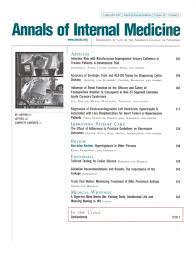
In February of this year, the Joy of Cooking launched what you could call an epic Twitter stream. Inspired by Stephanie Lee’s reporting in BuzzFeed on Brian Wansink — the food marketing researcher at Cornell who later resigned following findings of misconduct by the university — the legendary cookbook pointed out all that was wrong with a 2009 study claiming that their recipes added calories over the years. Those tweets led to coverage in The Verge, The New Yorker, and elsewhere.
This week, the Annals of Internal Medicine retracted that paper, along with another. That brings Wansink’s tally of retracted papers to 17, with one of the papers retracted twice. (And no, 17 is nowhere near a record; he’s not even among the 30 authors with the most retractions in the world.) As Retraction Watch readers will likely recall, his work began to unravel when, after a 2016 blog post in which Wansink seemed to endorse p-hacking, four researchers joined forces to analyze his work.
Here’s the notice for 2009’s “The Joy of Cooking Too Much: 70 Years of Calorie Increases in Classic Recipes,” a paper that has been cited 20 times, according to Clarivate Analytics’ Web of Science: Continue reading The Joy of Cooking, vindicated: Journal retracts two more Brian Wansink papers
 A major medical journal has updated its instructions to authors,
A major medical journal has updated its instructions to authors, 

